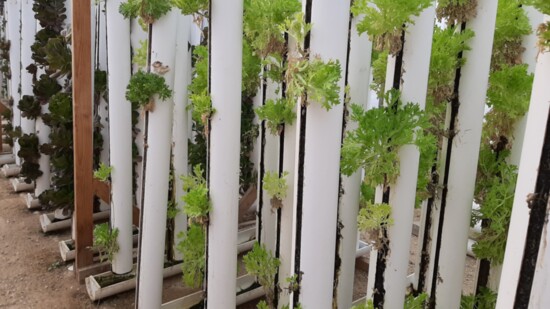Life is full of unexpected twists and turns. And sometimes those turns lead us to places we didn’t quite think we would ever end up. Fortunately, in our human experience, there are always choices. And we can find our way back to the paths that bring us to our greatest good. Boise Vertical Farm is one of those paths.
Co-founder of the organization, Jeff Middleton, found himself on a bad path more than 14 years ago. A recovering addict on a mission to choose a different direction, he was dissatisfied with the options he had for recovery.
“Everything associated with the system was punitive. Punishing people for being addicted solves nothing,” explained Middleton. “I felt there had to be a better way. To me, a brush with the law could be turned into a positive. The people like me who were going through the court systems were not criminals. We were developing criminals. If we continued along our current path, we would develop into criminals, but we were addicts who needed a different direction.”
The idea for Boise Vertical Farm grew from a trip to Jackson Hole, Wyoming. Our Wyoming neighbors are home to a company called Vertical Harvest, a large hydroponic produce operation that provides jobs to people who have physical or developmental challenges, in addition to supplying a natural, delicious bounty for the community and beyond.
Middleton was inspired and took this business model and applied it to his own journey of recovery. “My business partner, Crystal Spencer, and I adapted the Vertical Harvest idea to fit what we observed about addiction in our lives and families. We came up with three objectives for Boise Vertical Farm. One: to provide another option for court-ordered community service. Two: to provide opportunities for better employment. And three: provide relapse-prevention training.”
He continued, “In my own journey from addiction, I was unable to find employment after getting clean. The jobs we can get are often in an environment with people who are not clean and sober, and this association can quickly lead to relapse.”
The healing properties of interacting with nature are bar-none. Coupled with getting your hands dirty in the soil and helping bring life to something can be incredibly therapeutic. “Addiction is a very self-centered existence. To help prevent relapse, we need to get addicts to venture outside themselves and contribute. Growing food for others is a very good way to contribute.”
Recent studies done by the National Institute of Health showed that the act of gardening improves mental wellbeing, increases confidence, and enhances overall health and quality of life.
Boise Vertical Farm started in 2019 and officially hosted their first participant in 2021. In the two short years that followed, the program grew from one participant to over 40, and is only expanding in 2024 and beyond. Participants are able to fulfill the terms of their court-ordered service but gain so much more—a community of peers who are going through similar experiences as well as a group of mentors and friends who have overcome the challenges they are currently facing. They learn valuable skills like how to look outside of themselves and be of service to their community, and other job-based trainings. “We have recently received a grant from Idaho Women's Charitable Foundation that will help with skills development, education, and follow up.”
Middleton makes a special acknowledgment to the many volunteers that help make the non-profit organization run smoothly. Some have struggled with addiction themselves, but many have simply been impacted by it, either through friends, family, or loved ones. “Our volunteers make the program. We have had doctors, nurses, pharmacists, lawyers, and people from all walks of life. Addiction affects everyone.”
“We might think we are nurturing our garden, but of course it’s our garden that is really nurturing us.” – Jenny Uglow
